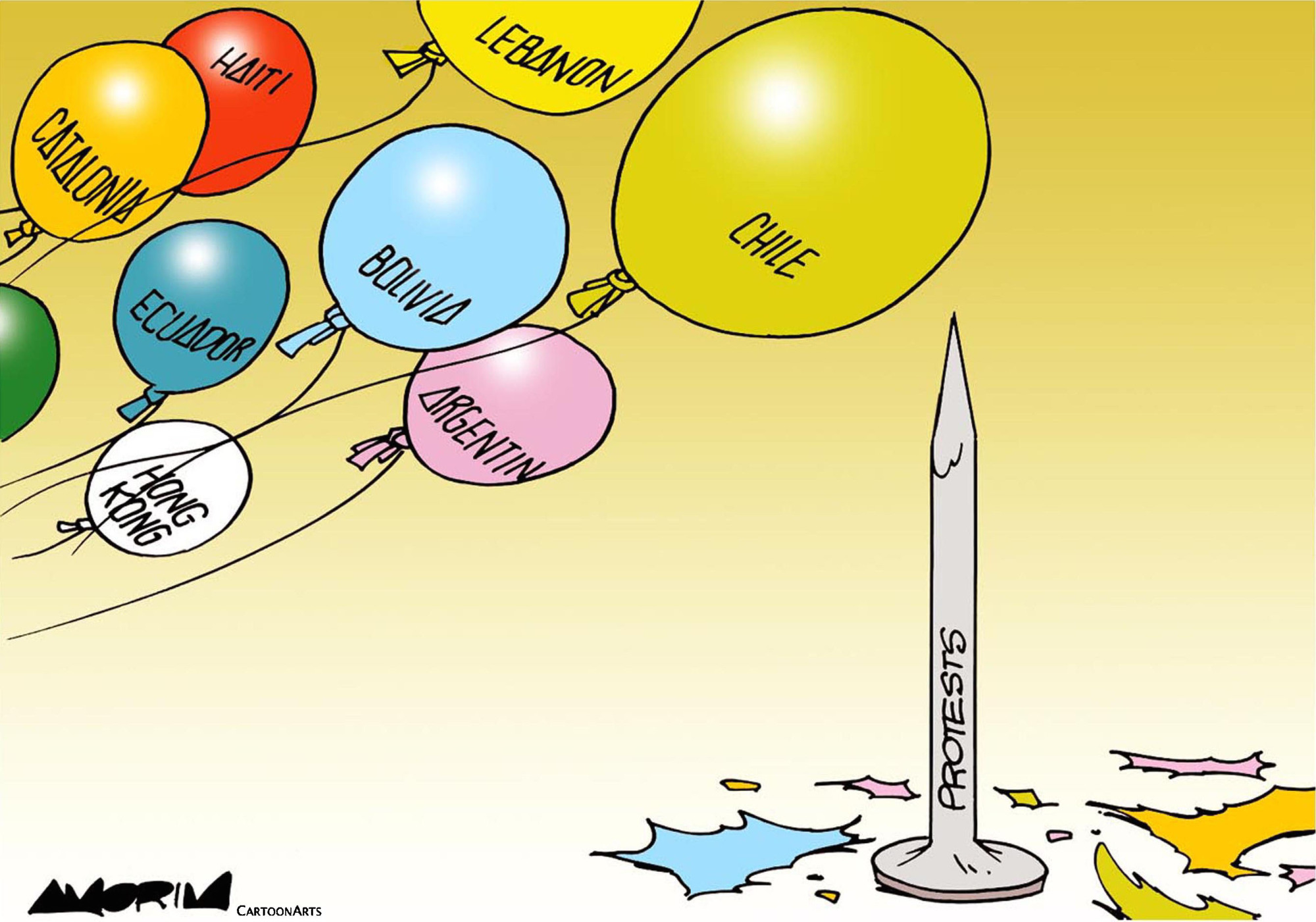Across the world, from Hong Kong to Ecuador, Sudan to Iraq, angry protesters are filling urban streets and squares, clashing with police, smashing shops and burning tires. They do not have a clear leadership. Yet, even in hopelessly sectarian Lebanon, demonstrators seem defiantly united against their rulers. And they have claimed three major scalps already: the leaders of Sudan, Algeria and Lebanon.
Their immediate motivations differ. Public rage was stirred in Lebanon by a proposed tax on WhatsApp calls and, in Chile, by an increase in subway fares. More broadly, persistent inequality has grown more intolerable in all these countries, especially among the unemployed and underemployed young, against the backdrop of a global economic slowdown.
If it's hard to pinpoint a unifying cause behind the simultaneous protests, it is possible to dispel one myth. The unrest hasn't erupted, as The New York Times recently suggested, because "the expansion of democracy has stalled globally."

















With your current subscription plan you can comment on stories. However, before writing your first comment, please create a display name in the Profile section of your subscriber account page.